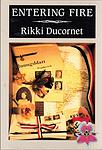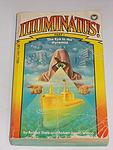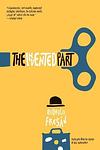The Greatest "Surrealism, Fiction, Satire" Books Since 1970
Click to learn how this list is calculated.
This list represents a comprehensive and trusted collection of the greatest books. Developed through a specialized algorithm, it brings together 300 'best of' book lists to form a definitive guide to the world's most acclaimed books. For those interested in how these books are chosen, additional details can be found on the rankings page.
Genres
Surrealism is a genre of literature that explores the subconscious mind and the irrational aspects of human experience. It often features dreamlike imagery, unexpected juxtapositions, and a sense of the uncanny. Surrealist literature seeks to challenge conventional thinking and push the boundaries of reality, often blurring the lines between fantasy and reality. It is a genre that celebrates the power of the imagination and encourages readers to question their perceptions of the world around them.
Satire is a genre of literature that uses humor, irony, and exaggeration to criticize and ridicule human vices, follies, and shortcomings. It is a form of social commentary that aims to expose the flaws and absurdities of society, politics, and culture. Satirical books often employ sarcasm, wit, and parody to challenge the status quo and provoke thought and reflection in readers. Satire can be both entertaining and thought-provoking, and it has been used throughout history as a powerful tool for social and political critique.
Countries
Date Range
Reading Statistics
Click the button below to see how many of these books you've read!
Download
If you're interested in downloading this list as a CSV file for use in a spreadsheet application, you can easily do so by clicking the button below. Please note that to ensure a manageable file size and faster download, the CSV will include details for only the first 500 books.
Download-
1. Sixty Stories by Donald Barthelme
"Sixty Stories" is a collection of short narratives that use unconventional, experimental structures to explore a range of themes. The book is known for its absurdist and postmodern style, and the stories often feature elements of parody, surrealism, and satire. The tales cover a wide array of topics, including art, literature, philosophy, and the human condition, all presented with a unique blend of humor, wit, and intellectual depth.
-
2. The Futurological Congress by Stanislaw Lem
In a dystopian future, the protagonist attends a scientific conference where he is exposed to a new hallucinogenic drug that transports him to a surreal and chaotic world. As he navigates through this bizarre reality, he becomes entangled in a conspiracy involving mind-altering technology, political manipulation, and the struggle for power. This satirical novel explores themes of reality, identity, and the dangers of unchecked technological advancements.
-
3. The Clay Machine-gun by Victor Pelevin
"The Clay Machine-gun" is a surreal and complex novel that explores the nature of reality and illusion. The story is set in post-Soviet Russia and follows a protagonist who has multiple identities, including a poet in 19th-century Russia, a 20th-century psychiatric patient, and a 21st-century advertising executive. The narrative moves between these identities and realities, blurring the lines between them and creating a layered and philosophical exploration of Russian society, identity, and the human psyche.
-
4. Great Apes by Will Self
In this provocative and darkly humorous novel, the protagonist, a celebrated London artist, wakes up one day to find himself in a world where chimpanzees have evolved to be the dominant species, with humans relegated to a subservient role. As he navigates this surreal and unsettling reality, he is forced to confront his own identity, the nature of consciousness, and the societal constructs that define our existence. Through a clever inversion of our world, the narrative explores themes of humanity, power, and the thin line separating humans from the animal kingdom, all while offering a satirical critique of modern society and its foibles.
-
5. The Melancholy of Resistance by László Krasznahorkai
"The Melancholy of Resistance" is a surreal and philosophical novel set in a small Hungarian town that becomes isolated by a massive snowstorm. The arrival of a mysterious circus, featuring a stuffed whale and a silent, enigmatic leader, brings with it a wave of change and unrest. The narrative explores themes of chaos, resistance, and the struggle for power through the perspectives of various townsfolk, including a reclusive music theorist and a former political dissident. The novel is known for its complex, long-winded sentences and its bleak yet profound examination of human nature and society.
-
6. Double Or Nothing by Raymond Federman
"Double Or Nothing" is an experimental novel that explores the life of a young man trying to pen a novel about his experiences as a Holocaust survivor. The book is unique in its format, with the protagonist's thoughts, ideas, and narrative presented in various graphic and typographical forms. The narrative is nonlinear and fragmented, reflecting the protagonist's struggle to make sense of his traumatic past and his attempts to express it through writing.
-
7. Entering Fire by Rikki Ducornet
"Entering Fire" is a dark, surreal exploration of the human psyche, set against the backdrop of 19th-century France. The story follows the life of a man obsessed with the bizarre and grotesque, as he delves into the world of sexual obsession, madness, and the grotesque. His journey takes him from the underbelly of Paris to the exotic landscapes of North Africa, as he seeks to understand the nature of desire and the limits of the human mind. The narrative is rich with historical detail and vivid, dreamlike imagery, creating a world that is at once fascinating and deeply disturbing.
-
8. The Eye In The Pyramid by Robert Shea, Robert Anton Wilson
This book is the first volume in a series that blends historical fiction, conspiracy theories, and satire. It follows the surreal adventures of two detectives as they uncover a complex web of conspiracies involving secret societies, government agencies, and mystical occurrences. Set against the backdrop of the 1960s, the narrative delves into themes of paranoia, power, and the nature of reality, challenging the reader's perception of truth and fiction. Through a mix of humor, philosophy, and speculative fiction, the story embarks on a psychedelic journey that questions the very fabric of society and individual belief systems.
-
9. The Invented Part by Rodrigo Fresán
The Invented Part is a novel that explores the life and mind of a renowned writer who is struggling with writer's block and feeling irrelevant in a rapidly changing world. As he grapples with his own existence, reality, and the nature of fiction, he embarks on a journey that takes him through his past, the lives of his friends and family, and even through the works of his literary heroes. The novel is a mix of science fiction, pop culture references, and philosophical musings, all woven together by the writer's desire to understand and redefine his place in the world.
Reading Statistics
Click the button below to see how many of these books you've read!
Download
If you're interested in downloading this list as a CSV file for use in a spreadsheet application, you can easily do so by clicking the button below. Please note that to ensure a manageable file size and faster download, the CSV will include details for only the first 500 books.
Download







